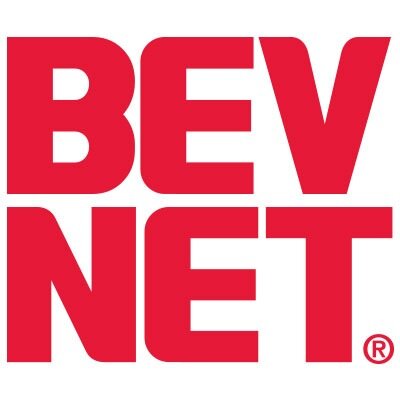
European Union Rules that Gene-Edited Crops Must be Regulated like GMOs -- What this Means for Policy in the U.S.
One thing became crystal clear this morning.
Unlike its counterparts in the U.S., the European Union is not beholden to the powerful ag-biotech industry, as it put the well-being of its citizens and the environment ahead of corporate profits.
In a blockbuster ruling that came out just hours ago and one that could have long-term trade implications for the U.S., the EU’s top court declared that gene-edited plants and animals are genetically-modified and must be regulated as such. What this means is that gene-edited crops, also known as the next generation of GMOs or GMOs 2.0, are required to be fully tested and labeled, and all field trials will be administered in the same way as genetically-modified crops.
Needless to say, environmental and consumer advocacy groups were thrilled about the court’s decision.
“This is an incredibly important and landmark ruling for both the planet and public health. We are happy to see the European Court declare that all products derived from genetic engineering must be regulated and assessed before they are released into the environment or onto the market. The synthetic biology and GMO industry has been spinning hype in the media, but new techniques like CRISPR may have severe impacts on health and the environment. This ruling gives consumers information that the biotech industry in the U.S. is not acknowledging,” said Dana Perls, Senior Food and Agriculture Campaigner with Friends of the Earth.
There are a few things to consider with this ruling.
1) How this decision will impact the USDA’s decision to label gene-edited foods.
When the USDA recently released its proposed federal standard for labeling GMO-foods, also known as the National Bioengineered Food Disclosure Law, it was unclear if gene-edited foods would be labeled or not.
It is possible that the EU’s decision today will put added pressure on the USDA to require labels for these foods. We should know sometime over the next few months what the USDA has decided, even though it will not make the July 29th deadline to have a rule in place, as mandated by Congress.
2) How this decision will impact the USDA’s decision to regulate gene-edited foods.
In March of this year, USDA Secretary Sonny Perdue reaffirmed that the “USDA does not currently regulate, or have any plans to regulate plants that could otherwise have been developed through traditional breeding techniques as long as they are developed without the use of a plant pest as the donor or vector and they are not themselves plant pests.”
Two examples of this type of plant are a genetically-engineered moss that produces fragrances and a glyphosate-resistant Kentucky bluegrass.
Regardless of how the USDA views a gene-edited crop, the EU decision has created a real headache for the agency and the entire Trump administration.
As Dr. Steve Suppan, Senior Policy Analyst at the Institute for Agriculture & Trade Policy, pointed out, “U.S. trade representatives will consider this EU ruling to be a trade impediment, and it will be another source of agricultural trade tension.”
Dr. Michael Hansen, Senior Scientist at Consumers Union, agrees. “If other countries are regulating gene-edited crops but we are not, this will create trade problems. If these crops get into international trade channels, very large shipments could be rejected, similar to what happened recently with genetically-engineered wheat in Canada and Syngenta’s genetically-engineered corn, which was blocked by China and cost the U.S. agriculture industry up to $2.9 billion.”
Even though the Trump administration has complete disdain for regulations and an unbridled willingness to placate the ag-biotech industry at the expense of the American consumer, the EU’s decision may force the USDA’s hand to do the right thing and regulate gene-edited crops. If not, the administration’s lack of action will make agricultural trade between the U.S. and the EU much more complicated, potentially costing farmers and food companies billions.
Nevertheless, organic consumers should be grateful that the EU stood up for human and environmental health, and sent a strong message that the well-being of citizens is still important.
 |
Have a great day! 
Max Goldberg, Founder |
Quick Hits
* On Living Maxwell, I wrote about why Nature’s Path quit the Organic Trade Organization, and one of the reasons was because GMO and chemical giants BASF and Cargill are members.
* As Linley Dixon, PhD and Associate Director for The Real Organic Project, noted, “Not only do these companies not have the best interests of organic farmers in mind, but they are actively harming them.”
* This might be the most important piece I have ever written on Living Maxwell, and I urge you to read it and share with your network.
* Food & Water Watch is actively opposing the nomination of Dow Chemical executive Scott Hutchins to oversee science and research at the USDA. If his nomination is approved, he would be the third heavy hitter from the company to join the agency.
* After Dow Chemical donated $1 million to President Donald Trump’s inaugural committee, the EPA reversed plans to ban Dow Agroscience’s toxic pesticide chlorpyrifos (a potent neurotoxin, especially to children) and the Department of Justice greenlit the megamerger with DuPont, creating ultra-consolidation in agriculture.
* Congrats to Rodale Institute, who received a $500,000 grant from the State of Pennsylvania.
* The health claims of alkaline water are coming under attack.
* In Brooklyn, the promenade at Whole Foods is sinking because of an EPA clean-up program.
Weekly News Summaries


Resistance to GMOs in Africa
By Maxwell Suuk
At a recent meeting in Ghana, experts and activists from Ethiopia, Kenya, Togo, South Africa and Zimbabwe discussed the importance of diversity of crops, food as part of culture and identity, and sustaining a food system without GMO crops.

Lean Cuisine Expands Line with Organic Ingredients
By Cathy Siegner
Nestlé's Lean Cuisine has expanded its Origins frozen entrée line with organic ingredients and a handful of vegan options.

Leading Private Equity Firm Alliance Consumer Growth Closes $350M Fund
By Carol Ortenberg
Alliance Consumer Growth, which has invested in brands such as Suja, Tata Harper and Babyganics, has just closed a $350M fund to invest in 'Rising Star' brands.


Jennifer Garner to Source from Family's Farm in Oklahoma
By Conor Knighton
Co-Founder Jennifer Garner is turning her old family farm into a site where they'll grow blueberries, kale and persimmons for her organic baby food company Once Upon a Farm.

Organic Flavored Water Brand Lands a $6.7M Investment
By Brad Avery
ReThink Water, which sells USDA certified organic flavored water for kids in 11,000 outlets throughout the country, has closed a $6.7M round of financing led by AccelFoods.

French Supermarket Chain Carrefour Makes an Organic Acquisition
Carrefour has purchased So.Bio, a regional organic food retailer in France, with the goal of expanding this concept throughout the country.


A Deep Dive into CBD
By Ben Yakas
As a follow-up to our recent feature story on organic CBD, here is an excellent and comprehensive two-part look at sourcing, legality and application of this super-hot ingredient.

Iran to Label Genetically-Modified Food
Beginning on July 23rd in Iran, all food that contains GMOs must be labeled.
The material in this newsletter is copyrighted and may be reprinted by permission only. All requests must be in writing. Please use our contact form to request republication rights.
Newsletter Archive
Quick Hits
* On Living Maxwell, I wrote about why Nature’s Path quit the Organic Trade Organization, and one of the reasons was because GMO and chemical giants BASF and Cargill are members.
* As Linley Dixon, PhD and Associate Director for The Real Organic Project, noted, “Not only do these companies not have the best interests of organic farmers in mind, but they are actively harming them.”
* This might be the most important piece I have ever written on Living Maxwell, and I urge you to read it and share with your network.
* Food & Water Watch is actively opposing the nomination of Dow Chemical executive Scott Hutchins to oversee science and research at the USDA. If his nomination is approved, he would be the third heavy hitter from the company to join the agency.
* After Dow Chemical donated $1 million to President Donald Trump’s inaugural committee, the EPA reversed plans to ban Dow Agroscience’s toxic pesticide chlorpyrifos (a potent neurotoxin, especially to children) and the Department of Justice greenlit the megamerger with DuPont, creating ultra-consolidation in agriculture.
* Congrats to Rodale Institute, who received a $500,000 grant from the State of Pennsylvania.
* The health claims of alkaline water are coming under attack.
* In Brooklyn, the promenade at Whole Foods is sinking because of an EPA clean-up program.
